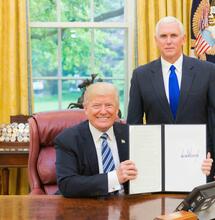Cannabis Could Cost Big Pharma Billions.

The continued legalisation of cannabis by U.S. states and other western countries and regions is likely to increase the use of cannabis as an alternative option to established pharmaceutical medicines.
When examining how cannabis legalisation between 1996 and 2019 has affected stock market returns for listed pharmaceutical companies, it is clear that returns were 1.5-2% lower ten days after legalisation.
Returns fell in reaction to drugmakers' medical and recreational legalisation in both generic and brand categories. Investors predict that total federal legalisation in the U.S. could reduce drugmaker annual sales by an average of $3B.
Despite the federal classification of cannabis as a Schedule I drug, inferring that it is of no medical use and has a high risk of abuse, 33 states had legalised medical access to cannabis by 2020.
There is a continually growing awareness of the potential therapeutic benefits cannabis may offer for various diseases. By expanding access and use, legalisation could see cannabis competing with conventional drugs as people begin to substitute traditional medications with cannabis.
As cannabis use is not restricted to treating a single or limited set of medical conditions, cannabis would simultaneously be a new entry across many different drug markets.
Recreational cannabis can be as accessible as conventional over-the-counter medications. The fact it does not require a prescription from a healthcare professional and can be bought in a store with little fuss would make it even more appealing to try.
Federally legalised "home growing" would increase the number of potential users again as people would have the opportunity to grow their own medicine at home for little cost.
There is emerging research that investigates changes in established drug use after a state legalises medical cannabis. One example shows that legal, medical cannabis is likely to decrease the use of prescription drugs, including opioids.
A study of Medicaid enrollees suggests that recreational cannabis legalisation reduces the use of lower potency, Schedule III opioids. Additionally, legal recreational cannabis decreases over-the-counter sleep aid and antacid sales.
It is no surprise that drugmakers (and those with vested interests in those companies) appear to recognise the threat and respond strategically by lobbying against state and federal legalisation. In simple terms, the big drug companies are against legalising cannabis as they do not want to lose profits.
Politics and power go hand in hand, so it is a fact that many politicians or political donors will have links to these companies. These sometimes very lucrative ties would be harmed by any significant competitor emerging on the market. This is true of most countries, not just the U.S. Unfortunately; it is another hurdle that needs to be overcome if we want to see widespread legalisation across western nations.









